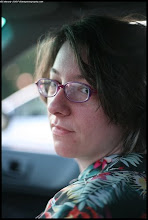When King Brion of Gwynedd is murdered by a sorceress with pretensions to his throne, his young heir Prince Kelson must rely on Duke Alaric Morgan, a member of the same race of sorcerers, to help him access his own kind of hereditary powers in time to face the pretender Charissa's inevitable magical challenge. However, the widowed Queen Jehana devoutly believes that all occult powers are intrinsically evil, and that to save his soul, her son must rule without magic--even if that puts his life at risk. And Jehana is well aware that to save Kelson from the taint of magic, she must first remove General Morgan.
Over at the Tor.com blog that I like so much, Judith Tarr is doing a detailed reread of Katherine Kurtz, and I jumped at the excuse to pick these up again. I first got hold of Deryni Rising when I was fourteen (the same age as Kelson, which did not escape my notice), and I fell hard for Kelson and Morgan, not to mention Morgan's aide Lord Derry. I read the books over and over as a teenager, and I'm so steeped in the history and mythology of them that it was really hard to write a short paragraph of summary without going into the whole saga of the Deryni Interregnum, Haldane Restoration, religious persecution of the Deryni, the family tree of the Festillic Pretenders, and the hagiography of Camber of Culdi, patron saint of Deryni magic.
However, before the current reread began I hadn't picked the books up in at least ten or fifteen years, and reading the first one again after that long is a little odd. I still remember the plot and the characters, and even some of the dialogue, really well, so on one level it has no surprises for me. But maybe because of the length of the hiatus since my last reread, or maybe because I'm now older than nearly all the named characters (and considerably older than the author was when she wrote it), I have been able to read it with a more critical eye.
I can tell, now, that it's clearly the first novel of a fairly young writer. And it's a damn fine first novel, but there are some clunky bits--repetitious sections, a main character who inconsistently acts far younger than his actual age and life experience should warrant, another main character who consistently acts far older than his age. My favorite rookie move is that several times the action stops dead for a detailed physical description of a person or a place when the viewpoint character logically should be too familiar with both the faces and the floor plans to pause for an inventory at that moment. One such passage comes right out and says something like, "Morgan allowed himself to take in the familiar surroundings," just as if Morgan wasn't really stressed, exhausted, and pressed for time just then!
And I can't really argue with LeGuin's point that the prose could just as well have been lifted from a modern political thriller; she's right, it doesn't sound like Elfland. But here's the thing: as Tarr points out in her own remarks, these books aren't aiming for that. The Chronicles of the Deryni are historical fantasy (and have a good claim to be progenitors of that whole genre). We're not in Elfland here! The Eleven Kingdoms, of which Kelson's Gwynedd is one, are human kingdoms populated by thoroughly realistic human beings, even if some of them are quasi-humans with innate magical abilities. Homo sum, as Terence said (and it's a book in this series that introduced me to that quotation): humani nil a me alienum puto. There is nothing alien about the hearts and minds of the Deryni.
So yes, I still love this book. Even knowing the story as well as I do, I fell right into it again (and leaped ahead of the pace of the reread to finish it and go on to the next one). It's still my benchmark for high fantasy taking place in anything like a historical setting.



No comments:
Post a Comment